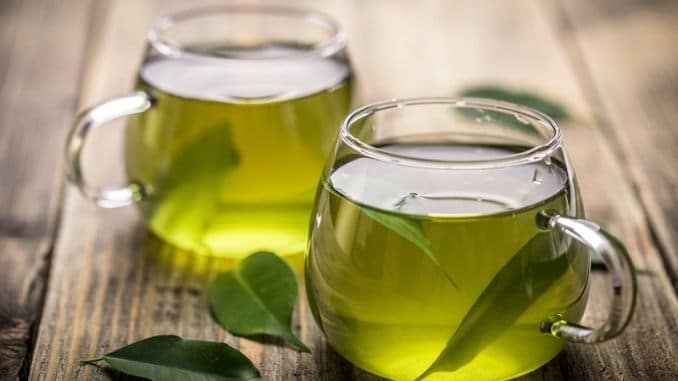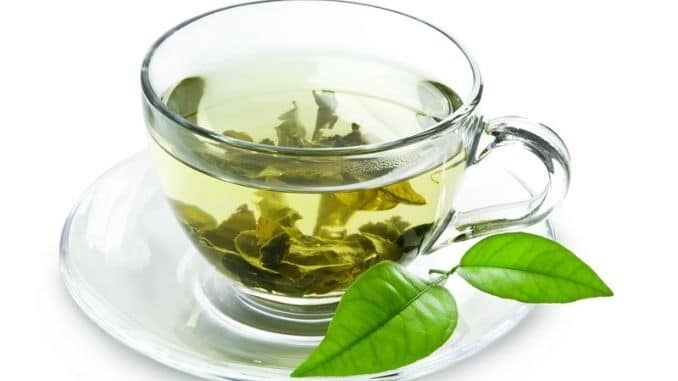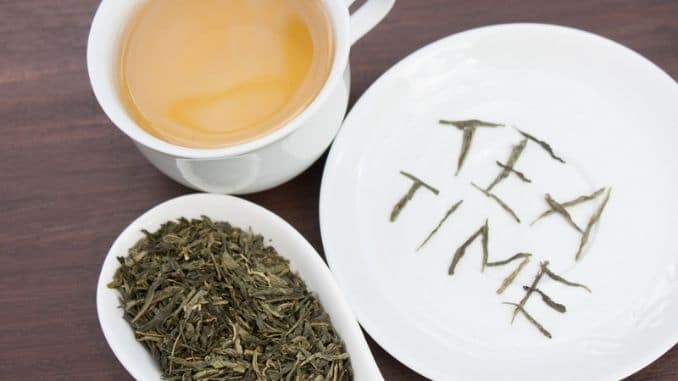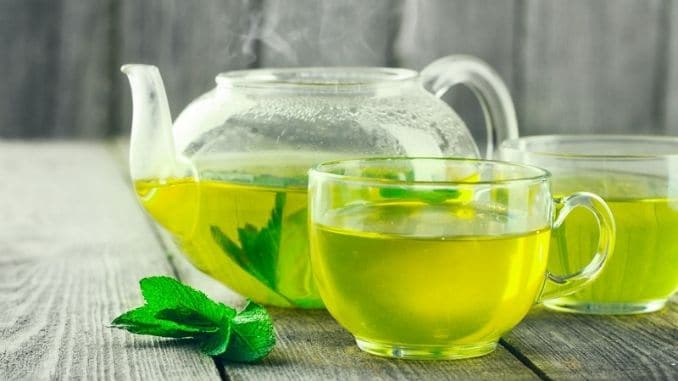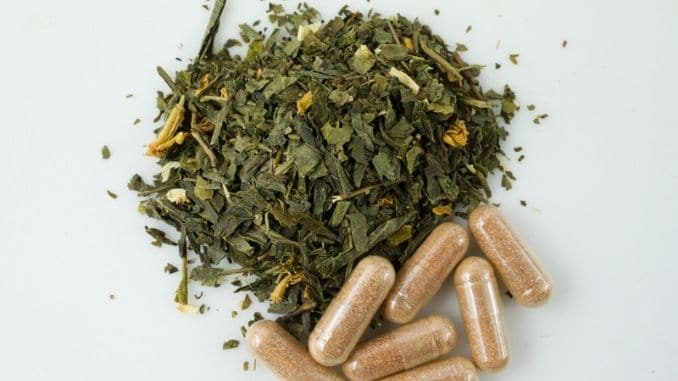In the early 2000s, green tea was pretty rare in the United States. Then, as people began to become more interested in being as healthy as they could be, green tea became the go-to beverage.
The World Green Tea Association states that about 600,000 tons of green tea are consumed every year in the world, with total consumption increasing by about 20 percent over the last decade. Estimates are that sales of green tea will grow by $8.1 billion globally by 2025.
Demand for green tea products has driven the growth of bottled green tea, as well as other green tea products such as powdered and pill-based supplements. Here, we take a look at all the ways green tea may benefit you, and how to find the most natural and refreshing products.
Where Did Green Tea Come From?
Green tea, like black tea, is made from the leaves of the Camellia sinensis plant. It is thought to have originated in China but is now widely produced throughout East Asia.
Records trace the cultivation as far back as the Han Dynasty (206-220 A.D.), but it was during China’s Tang Dynasty (600-900 A.D.) that a man named Lu Tu wrote a book about tea drinking entitled The Classic of Tea. That book was the first written work to explain the culture and art of green tea.
European explorers brought green tea to the West in the 19th century, and it (along with black tea) soon became Great Britain’s national beverage. Green tea first came to America when it was shipped overseas with settlers.
What’s the Difference Between Green and Black Tea?
The difference between green and black tea lies in how they’re prepared. For black tea, the leaves are allowed to wither, dry, and oxidize in a process called fermentation. The longer the leaves are allowed to oxidize, the more bold the flavor.
For green tea, also called “unoxidized tea,” the process is similar, but the amount of fermentation is different. Green tea leaves may be allowed to wither slightly, but then they are either pan-fired, oven-dried or steamed to prevent oxidation from occurring. This allows the leaves to retain their green color and produces a lighter, grassier taste.
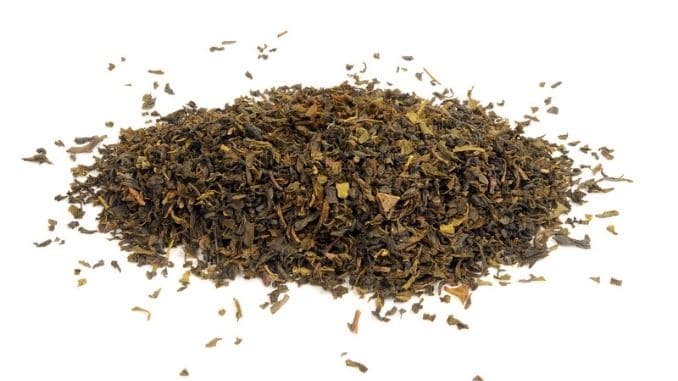 Health Benefits of Black and Green Tea
Health Benefits of Black and Green Tea
Both black and green tea has health benefits, but they may differ slightly because of many factors including:
- Harvesting time
- Where the leaves were grown
- Processing method
- Storing conditions
- Brewing technique
Both tea has been found in studies to have the following health benefits:
- Antioxidant protection
- Anti-inflammatory activity
- Anti-cancer activity
- Anti-microbial activity
- Calming, mood-boosting effect
Both types of tea contain caffeine, though black tea, in general, contains more caffeine than green tea.
10 Health Benefits of Green Tea
1. Delivers Healthy Antioxidants
Green tea is a great source of protective antioxidants. These are compounds that fight off free radicals and protect the body’s cells from the type of damage that can lead to cancer.
Several studies have linked the intake of green tea to a lower risk of cancer. In a review of studies on breast cancer published between 1998 and 2009, researchers found that women who drank the greenest tea had a 20-30 percent lower risk of developing breast cancer than those who drank the least.
Other studies have found similar results when it comes to prostate and colorectal cancer.
2. Fights Cardiovascular Disease
Cardiovascular disease remains the number-one killer of both men and women worldwide. Green tea may help lower the LDL (bad) cholesterol in the blood, which can help to prevent cardiovascular disease.
In a 2011 review, researchers analyzed the results of 14 studies involving over 1,000 subjects and found that green tea consumption significantly lowered the total cholesterol concentration as well as the LDL cholesterol concentration.
Another study of over 40,000 adults found that those who drank more than five cups of green tea per day had a 26 percent lower risk of death from a heart attack or stroke and a 16 percent lower risk of death from all causes than people who drank less than one cup of green tea per day.
3. Helps Prevent Type 2 Diabetes
More than 34 million Americans have diabetes (about one in 10), with another 88 million having prediabetes. The disease causes blood sugar levels to go too high, which can increase the risk of heart disease, nerve damage, kidney disease, eye problems, and more.
Drinking green tea may help to control blood sugar levels, which may help reduce the risk of developing diabetes. A 2013 review found that green tea decreased fasting glucose and HbA1c concentrations. An earlier study of about 17,000 people found that consumption of green tea and coffee was associated with a reduced risk for diabetes.
Yet another review of 18 studies involving over 457,000 people found that high intakes of tea and coffee were associated with a reduced risk of diabetes.
4. Protects Brain Health
The Centers for Disease Control and Prevention (CDC) states that an estimated 5 million adults over the age of 65 have dementia, with that number projected to be nearly 14 million by 2060.
Several studies have shown that the catechins in green tea—a class of flavonoids or plant-based chemicals—have a protective effect on the neurons in the brain. In a 2016 study of over 13,000 participants, scientists found that more frequent green tea consumption was associated with a lower risk of dementia.
Some research suggests that certain constituents of green tea may also help improve focus and concentration. In a 2008 study, researchers found that those who ingested l-theanine and caffeine, which are both components of green tea, experienced improved focus and attention.
One 2019 study revealed that regular tea drinkers also have “better organized” brain regions compared to non-tea drinkers. In other words, they were interconnected in a more efficient way, which improved cognitive function.
5. Reduces Inflammation
Inflammation lies at the heart of many of our most serious diseases. Cardiovascular disease, cancer, rheumatoid arthritis, inflammatory bowel disease, and more are all related to an excess amount of internal inflammation.
Green tea can help lower inflammation and protect the body and mind from an inflammatory assault. Researchers believe green tea’s major component, epigallocatechin-3-gallate (EGCG) bears the most responsibility for its powerful anti-inflammatory effects. In a 2016 review, results showed that green tea helped lower inflammation and improved the quality of life in people with inflammatory diseases.
In an earlier laboratory study, scientists found that both green and black tea had a marked anti-inflammatory effect, though green tea was found to be more active than black tea, potentially due to the higher flavonoid contents in it. This protective action may be part of the reason green tea helps prevent cardiovascular disease.
In another study, scientists suggested that because of green tea’s ability to lower inflammation and oxidation, it should be considered as a dietary supplement in the prevention of cardiovascular disease.
6. Protects Against Bone Loss
We all start losing bone mass as we age unless we work hard to counteract it. Exercising and lifting weights can help, as can making sure we get enough calcium and vitamin D in our diets.
Drinking green tea may also help. It seems some of the compounds may help promote bone formation while inhibiting bone resorption—a natural process that can lead to bone loss over time. Scientists reported in a 2007 study that bone mineral density levels were 2.8 percent greater in tea drinkers than non-tea drinkers, suggesting that drinking tea may help prevent osteoporosis.
Another study found that tea and its bioactive components “might decrease the risk of fracture by improving bone mineral density (BMD)” and supporting bone-building activities.
7. Promotes Oral Health
You may have heard that the bacteria in your mouth can travel to other areas of the body, where they can cause diseases like heart disease, pneumonia, and diabetes. Green tea can not only help to reduce that bacteria, but also improve bad breath.
In a 2012 study, scientists noted that green tea could promote periodontal health by reducing inflammation and limiting the growth of certain bacteria associated with periodontal diseases. A later 2017 study found similar results, with green tea showing antioxidant, antimicrobial, and other beneficial effects on oral health.
Researchers also reported in 2008 that green tea helped reduce sulfur compounds in the mouth that produce bad breath, and demonstrated strong deodorant activities. They concluded that green tea was “very effective in reducing oral malodor…” Now you know which drink to have after a meal if you’re on a date!
8. Helps with Weight Loss
While green tea has only modest effects on weight loss, it is a good drink to have if you’re trying to shed a few pounds. Several studies have found that it can help reduce body fat, particularly in the abdominal area.
In one 12-week study of 240 people with obesity, those who ingested green tea experienced greater weight loss and decreases in body mass index (BMI), body fat ratio, and waist circumference than those in the control group.
Some studies have also found that green tea has “thermogenic properties” which means that it may boost metabolism and increase the amount of fat burned in the body.
Other studies have shown the opposite results, however, so it’s important not to rely strictly on green tea when trying to lose weight. Adding it to a healthy diet and regular exercise program, however, may slightly improve your results.
9. Boosts Mood and Reduces Risk of Depression
Drink green tea regularly and you may find that you have an easier time avoiding depression. L-theanine, an amino acid found naturally in tea leaves, provides a relaxing and mood-boosting effect.
In a 2009 study of about 1,000 elderly people aged 70 years and older, researchers found that more frequent consumption of green tea was associated with a lower prevalence of depressive symptoms. A later study found similar results, with consistent and frequent tea-drinking helping to reduce the risk of depressive symptoms.
Green tea may also help those who already are depressed. In a 2020 study, researchers found that green tea extract given for 12 weeks led to a greater and more rapid improvement in symptoms than a placebo. It worked so well that the scientists suggested it could be considered as an alternative therapy for mild to moderate depression.
10. May Help You Live Longer
A couple of studies have found that those who regularly drink green tea have a reduced risk of mortality compared to those who don’t. In the study mentioned above of about 40,000 people, for example, those who drank five or more cups per day were significantly less likely to die during the study period than those who drank less than that.
In another study of about 14,000 elderly people, scientists found that those who consumed seven or more cups of green tea per day had a lower mortality risk than those who drank less than one cup per day. The study also showed that drinking green tea could help protect against colorectal cancer.
You may not want to drink that much green tea, but it is interesting to imagine that it could help add a few years to your life!
Tips for Choosing the Best Brew
When looking for the best green tea, consider these tips:
- Choose organic green tea, as it is likely to be less contaminated with pesticides.
- Choose loose leaf tea—it usually has more EGCG than bagged tea.
- Avoid added sugars. Many iced green tea varieties come with extra sugar.
- Consider freshness. Green tea has a shelf life of about 6 months.
- Look for antioxidant content. This information may not be on the label, but you can check with ConsumerLabs.com to find out what their tests revealed for the antioxidant content of various brands of green tea.
- Brew correctly. Generally, use one teaspoon of loose green tea per 8-ounce cup. Brew with scalding water for 2-3 minutes.
As you can see, not only is green tea a ‘guilt-free beverage, it also has numerous health benefits that are worth noting. The next time you go to grab another cup of coffee, maybe reach for the tea instead. The positive impact that green tea can have on your heart and brain health is definitely worth making the switch!
Learn even more tips about healthy eating and drinking! Click here to discover the best anti-inflammatory foods.

